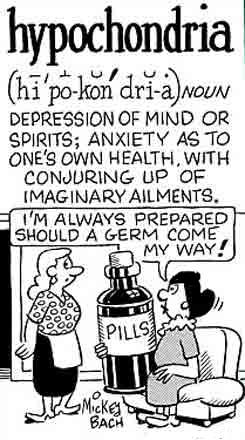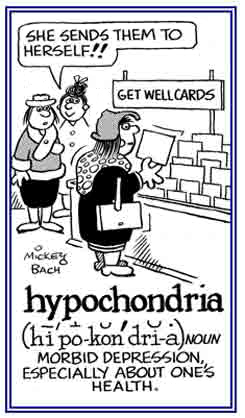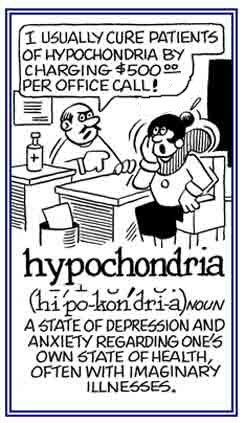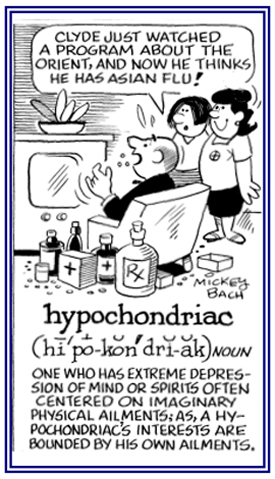chondro-, chondr-, chrondrio-, chondri-, -chondriac, -chondrias, -chondromatous, -chondroma, -chondromas, -chondromata
(Greek: groat, grain, any small rounded mass; cartilage, gristle, granule, or a relationship to cartilage)
chondronecrosis
Necrosis of the cartilage, or the firm, rubbery tissue that cushions bones at joints.
The study of the diseases of cartilage: The discipline of chondropathology pertains to the disorders of the firm, rubbery tissue that cushions bones at the joints.
A more flexible kind of cartilage connects muscles with bones and makes up other parts of the body, such as the larynx and the outside parts of the ears.
Disease of the cartilage: Lynn found out that chondropathy not only pertained to an illness of the cartilage, but was also divided into 5 grades with 0 - 2 considered as normal, and 3 - 4 determined as sick or infected.
chondroplastic
chondroplasty
The parts of the bony structures of vertebrates which are formed from cartilage (substance that surrounds the joints): "The chondroskeleton is an element of bones which consists of specialized connective tissue between the joints; such as, the knees, fingers, etc."
chondrosternoplasty
chondrotome
chondrotomy
chondrotrophic
1. A reference to people who frantically search on the internet for detailed information about their medical problems, real or imagined: Jim's family was worried about his uncle who appeared to be suffering from cyberchondria and urged him to see his medical physician whenever he thought he was ill.
2. A situation in which people surf the net in a frenzy of health anxiety: Sometimes cyberchondria makes people imagine they are more ill than they really are.
3. Etymology: cyberchondria is a neologism which is derived from the terms cyber- + [hypo]chondria (chronic and abnormal anxiety about imaginary symptoms and ailments).
2. A situation in which people surf the net in a frenzy of health anxiety: Sometimes cyberchondria makes people imagine they are more ill than they really are.
3. Etymology: cyberchondria is a neologism which is derived from the terms cyber- + [hypo]chondria (chronic and abnormal anxiety about imaginary symptoms and ailments).
The element -chondria comes from Late Latin hypochondria, "the abdomen", from Greek hypokhondria (neuter plural of hypokhondrios), from hypo-, "under" + khondros, "cartilage" of the breastbone.
It comes from the ancient belief that the viscera of the hypochondria were the seat of melancholy and the sources of the vapors that caused such feelings.
A congenital disorder characterized by the proliferation of cartilage within the extremity of the shafts of bones, causing thinning of the cortex and distortion in length in abnormal places: "The unusual dyschondroplasia in the football player made his legs long, but weak, because the extebded cartilage was not as strong as bone."
enchondroma
1. A psychological disorder characterized by an unusual or excessive concern or worry about one's health or having a serious illness: Mona revealed her hypochondria by talking constantly about her health concerns with her friends, not only with her doctor.
2. An abnormal concern about one's health, with the false belief that one is suffering from some disease even when there are medical reassurances that the person is not ill: Glenda's doctor told her that there was no evidence that she was suffering from any kind of physical sickness; however, it was possible that she might have a psychological disorder known as hypochondria.

© ALL rights are reserved.

© ALL rights are reserved.

© ALL rights are reserved.
Go to this Word A Day Revisited Index
2. An abnormal concern about one's health, with the false belief that one is suffering from some disease even when there are medical reassurances that the person is not ill: Glenda's doctor told her that there was no evidence that she was suffering from any kind of physical sickness; however, it was possible that she might have a psychological disorder known as hypochondria.



Go to this Word A Day Revisited Index
for a list of additional Mickey Bach illustrations.
An individual with an abnormal and excessive interest in and fear of disease, especially people who are otherwise healthy: Jane often complained about feeling ill, told her friends, and often went to the doctors, but they could never find anything causing the pain and diagnosed her as being a hypochondriac.

© ALL rights are reserved.
Go to this Word A Day Revisited Index



